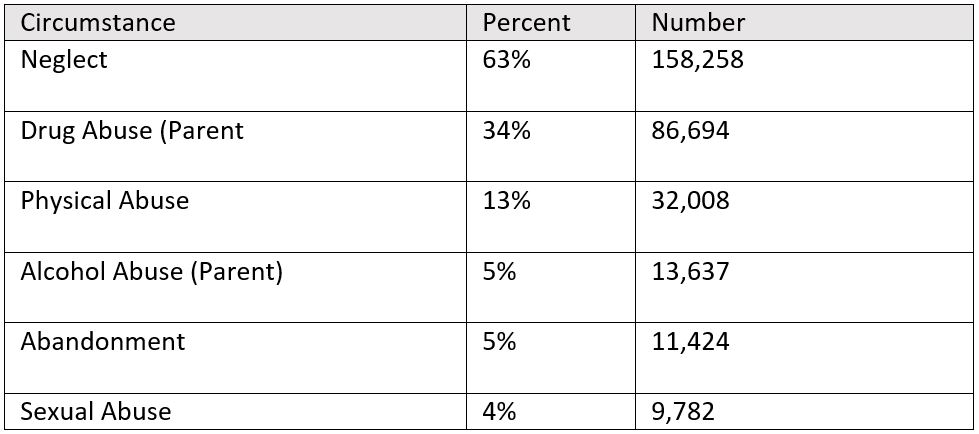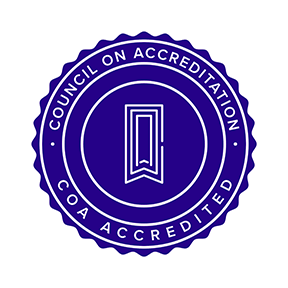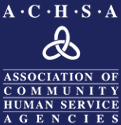

Abuse and trauma are the most common reasons children enter the foster care system. In observance of Child Abuse Prevention Month, Trinity Youth Services (TYS) would like to focus on Post-Traumatic Stress Disorder (PTSD) that impacts children with history of abuse and the ways TYS cares for these children.
In a report by the Children’s Bureau, the following were six circumstances associated with the removal of a child from the home:

When a child is displaced from their home due to circumstance of abuse, they are faced with ongoing and difficult challenges. One major challenge is living with, and working to overcome, the anxiety and fears associated with Post-Traumatic Stress Disorder (PTSD).
According to a study done by SAFY, one in four youths in foster care will experience PTSD. In comparison to children not in the foster care system, the Harvard Crimson stated that foster children are twice as likely to suffer from PTSD.
When left untreated PTSD can result in severe consequences and possible impairments in functioning for their age. Children with untreated PTSD can develop anxiety resulting in anger management issues, hypervigilance, avoidant behaviors, panic, feelings of loneliness, depression, school problems and more issues that continue to impact their lives. To treat PTSD and other issues resulting from abuse, professional treatment is critical.
TYS understands the grievous impact of abuse on children, which is why mental health services can change the course of their lives. Each child who enters our care is given access to assessment, individualized treatment planning, and other treatment types tailored to meet their particular needs and achieve their objectives. Our therapists make certain that each child’s goals are SMART (Specific, Measurable, Attainable, Realistic, Time-related), that each goal addresses the reduction of symptoms related to their identified diagnosis, and interventions are selected which specifically address goals. All TYS staff are trained in Trauma-Informed Care, a variety of Evidence-Based Treatment Services (Seeking Safety, Trauma-Focused Cognitive Behavior Therapy, and Motivational Interviewing), and Promising Practices (Managing Adaptive Practices) are utilized to ensure the best practices are being implemented.
TYS offers a variety of programs such as our Foster-Adopt program, Home-Based Family Care, Intensive Services Foster Care and Mental Health Services. To learn more about our programs call us at (800) 964-9811 or email us at info@trinityys.org.
 Isabel Millward-Pena, Communications Specialist
Isabel Millward-Pena, Communications Specialist
Isabel contributes content for our social media, blog, newsletters and promotional materials. She recently earned a bachelor’s degree in English from California State University San Bernardino and is currently working on her master’s degree. Isabel began working at Trinity as an intern, was hired as clerical, and was then promoted to communications in our development department. Prior to her work at Trinity, she was a substitute instructional aid and a supervisor at Starbucks. She has also volunteered as an aid at local elementary schools and notably achieved “Partner of the Quarter” at Starbucks in 2017. Isabel is an active member of Trinity’s Diversity, Inclusion, Value and Equity (DIVE) team and volunteers her time at the Children’s Foundation of America.

 Trinity Youth Services joins the California Council of Community Behavioral Health Agencies, The California Alliance of Child and Family Services and other behavioral health leaders across the state in strong support of the growing list of cities and county jurisdictions that are declaring racism to be a public health emergency or crisis. Trinity acknowledges this as a first step toward shining a light on the realities of systemic, institutional, and structural racism that leads to abuse of power and racial injustice.
Trinity Youth Services joins the California Council of Community Behavioral Health Agencies, The California Alliance of Child and Family Services and other behavioral health leaders across the state in strong support of the growing list of cities and county jurisdictions that are declaring racism to be a public health emergency or crisis. Trinity acknowledges this as a first step toward shining a light on the realities of systemic, institutional, and structural racism that leads to abuse of power and racial injustice.
As the United States faces numerous challenges, we must prioritize the need to fix the deeply embedded systemic and structural beliefs and practices which negatively impact racial and ethnically diverse communities. The mental and physical health of the individuals that make up these communities is being profoundly affected and we must take a stand.
In California, Black Americans have a lower life expectancy, higher burden of disease from a preventable cause, and less access to mental health care than their white counterparts. Black children are four times more likely to have an emergency visit due to asthma. Black women are four times more likely to die in childbirth. Black older adults are at a significantly higher risk for dementia. The American Academy of Family Physicians has spoken out about the fact that racism directly accounts for tens of billions of dollars spent on excessive medical costs and loss of productivity due to lack of equitable access to appropriate services.
At Trinity, we are acutely aware of the structural inequities that exist in many public systems. Black, Latino and Native American children continue to enter the foster care and juvenile justice system at disproportionally high rates, just as their adult counterparts are incarcerated at disproportionally higher rates than whites. It is our responsibility to do everything within our power to break the institutional pipeline for foster youth, but to do so, we must actively engage and partner with the health, education and justice sectors to develop “anti-racist” policies and practices that support our work, and the work of so many of our peer agencies and advocates.
We implore our peer agencies, as well as all human service organizations to adapt and adopt action steps as part of a statewide declaration of racism as a public health crisis and to engage their stakeholders and the greater community in a broader conversation to end racism in all sectors of our society.
In Solidarity,
Cher Ofstedahl, CEO


The Continuum of Care Reform (CCR) was designed so that children living out of their home would be provided the most appropriate placement in committed nurturing resource (foster) homes. Services and supports will be tailored based on each child’s needs. All of these services and supports fall into 6 Core Services: mental health, transition support upon entry, educational/physical/behavioral/extracurricular support, transition to adulthood support, permanency support, and Native American child services.
The Trinity Youth Services (TYS) team, along with our resource (foster) families, will directly provide the core services and support to children, Non-minor Dependents (NMD) and their families, fulfilling the requirements of the CCR.
Last month we outlined the second core services, transition support services and what that entails. This month we will look at educational, physical, behavioral, and extracurricular support. This core service covers a wide range of items that will help each child feel more “normal” in foster care.

Educational
TYS will ensure that resource parents enroll school-aged children within three school days. The Treatment Foster Care Social Worker (TFCSW) will assist the resource parent if the school does not enroll the child immediately. TYS will ensure that children have access to the same academic resources as other students. TYS will ensure that if a child is struggling in school, the TFCSW along with the Child and Family Team will request that the school hold a Student Study Team (SST) meeting and/or an assessment for an Individualized Education Plan (IEP). The TFCSW will ensure that tutoring services are received, if needed. The TFCSW will assist youth in vocational and/or college preparatory tasks. The TFCSW will ensure that children and youth are receiving life skills training by the resource parents.
Physical, Behavioral, & Mental Health
The TFCSW will ensure that resource parents obtain all medical, dental, behavioral, and mental health services that the child needs with set time frames. The TFCSW will ensure that all children and youth have support and advocacy with respect to prompt and culturally sensitive interventions when being bullied for any reason, such as physical characteristics, foster care status, sexual orientation/gender identity expression (SOGIE), race/ethnicity, or age. Resource parents and the TFCSW are to work closely together to serve the needs of the children. Whenever there is a concern or question the resource parent should be notifying their assigned TFCSW.
Extracurricular
Part of normalizing the children’s experience in foster care is to get them involved in activities or groups either at school or in the community. Schools have a variety of clubs children can join—choir, art club, or sports. In the community, there are various recreational activities—swimming, baseball, softball, or Girl or Boy Scouts. Resource parent must include the children in making the choice of what type of activity interests them. Being involved in such activities helps the children feel connected to other people and make friends with other children with similar interests. Many communities offer short classes through their parks and recreation departments, this is an inexpensive way to expose your children to a variety of activities.
My next blog will cover transition to adulthood support. This topic dives into the important support offered to TYS youth as they obtain independence.
 Jackie Jakob, Foster Care and Adoptions Director
Jackie Jakob, Foster Care and Adoptions Director
Having over 20 years’ experience, Jackie currently oversees Trinity Youth Services’ operations of foster care and adoptions programs throughout Southern California and in Houston, Texas. She received a bachelor’s degree in law and society from University of California Santa Barbara, a master’s degree in social work from California State University Long Beach and recently became a Licensed Clinical Social Worker. Jackie enjoys spending time with her husband and two children attending various baseball, softball and judo meets. She is on the parent board for a judo dojo and is one of the troop leaders for her daughter’s Girl Scout troop. Additionally, she really enjoys running half marathons and aims to run 4 to 5 races each year.
Tel: 909.825.5588 | Email: info@trinityys.org


The Continuum of Care Reform (CCR) was designed so that children living out of their home would be provided the most appropriate placement in committed nurturing foster homes. Services and supports will be tailored based on each child’s needs. All of these services and supports fall into 6 Core Services: mental health, transition support upon entry, educational/physical/behavioral/extracurricular support, transition to adulthood support, permanency support, and Native American child services.
The Trinity Youth Services (TYS) team, along with our foster/resource families, will directly provide the core services and support to children, Non-minor Dependents (NMD) and their families fulfilling the requirements of CCR.
In this blog, we will outline the first Core Services, Specialty Mental Health Services, and how TYS will provide that service.
Trinity Youth Services is contracted with the Los Angeles County Department of Mental Health (LADMH) as well as San Bernardino County Department of Behavioral Health (SBDBH) to provide an array of Specialty Mental Health Services including: Individual/Family Therapy, Collateral Interventions, Medication Support, Therapeutic Behavior Services (TBS), In Home Behavior Support, and Targeted Case Management. These services are delivered by therapists meeting the requirements of each County’s contracts and the California Board of Behavioral Sciences. TYS therapists are trained in Evidence-Based Practices and Outcome Measures designed to meet the needs of the children served.
Assessment
Each child receives a comprehensive assessment upon intake to determine the appropriate course of treatment involving therapy, medication, school, recreation, reunification with family, or transitional housing. Once the assessment is completed, a treatment plan is developed with the Child and Family Team (CFT) to determine goals intended to reduce symptoms, improve behavior, and improve interactions with family and other areas of concern. The primary goal is to return each child to his/her family whenever this is possible and appropriate, to a lower level of placement, or to another permanent placement such as adoption.

Individual Treatment
Each child who meets medical necessity receives individual therapy on a weekly basis, provided by a highly-qualified therapist. Therapy is conducted in English, or efforts are made to secure staff to assist in providing services in the most comfortable language for the child, along with appropriate cultural competency and humility. Sessions can address a multitude of presenting problems, including those relating to trauma, anger, victimization, substance abuse, and mood disorders (anxiety, depression, etc.). Therapists are able to utilize several Evidence-Based Practices (EBP) that fit the specific challenges of each child, and they will monitor progress with accompanying outcome measures.
Family Therapy and Family Reunification
Family plays a very important role in successful treatment. Every effort is made by the CFT to ensure family contact/participation, including assistance with transportation or language barriers. This will be accomplished under the guidelines of the Core Practice Model through Child Family Team Meetings (CFTM). Family therapy occurs at least monthly or more often as needed.
Evidence-Based Practices
All children are assessed to determine the best course of treatment to address their mental health needs. In addition to the standard therapeutic methods for which clinicians are routinely trained, Trinity offers three other Evidence-Based Practices designed to address a variety of complex mental health issues:
- Seeking Safety: Seeking Safety is a trauma informed model focusing on developing alternative functional coping skills. It also addresses topics related to anger management, substance abuse and prevention. Seeking Safety, while used in Individual Therapy as appropriate, is also the group model for Anger Management and Drug Prevention;
- Trauma Focused Cognitive Behavior Therapy (TFCBT): TFCBT is an individual, short-term treatment that involves individual and joint sessions with the child and parent. The goal of TFCBT is to help address the bio-psychosocial needs of the child and sharing their trauma narrative with their parents or primary caregivers. Some TYS therapists are similarly trained in Individual Cognitive Behavior Therapy (I-CBT);
- Managing and Adapting Practice (MAP): This approach allows the clinicians to adapt treatment to scenarios where children have more than one problem area. This approach uses research studies, tracks progress, and implements multiple interventions best suited to the individual child.
Medication Support
Psychiatric evaluations are initially conducted by a licensed psychiatrist to determine if medications are needed and to provide further diagnostic information to the assessing therapist. If medications are prescribed, the child attends follow up psychiatric visits at least monthly, or as often as needed as determined by the treating doctor. When medication is not necessary/prescribed, children may continue psychiatric care if referred for specific issues or needs.
Stay tuned for my next blog, which will cover transition support. This topic dives into the important support offered to TYS children as they enter foster care.
 Jackie Jakob, Foster Care and Adoptions Director
Jackie Jakob, Foster Care and Adoptions Director
Having over 20 years’ experience, Jackie currently oversees Trinity Youth Services’ operations of foster care and adoptions programs throughout Southern California and in Houston, Texas. She received a bachelor’s degree in law and society from University of California Santa Barbara, a master’s degree in social work from California State University Long Beach and recently became a Licensed Clinical Social Worker. Jackie enjoys spending time with her husband and two children attending various baseball, softball and judo meets. She is on the parent board for a judo dojo and is one of the troop leaders for her daughter’s Girl Scout troop. Additionally, she really enjoys running half marathons and aims to run 4 to 5 races each year.
Tel: 909.825.5588 | Email: info@trinityys.org




